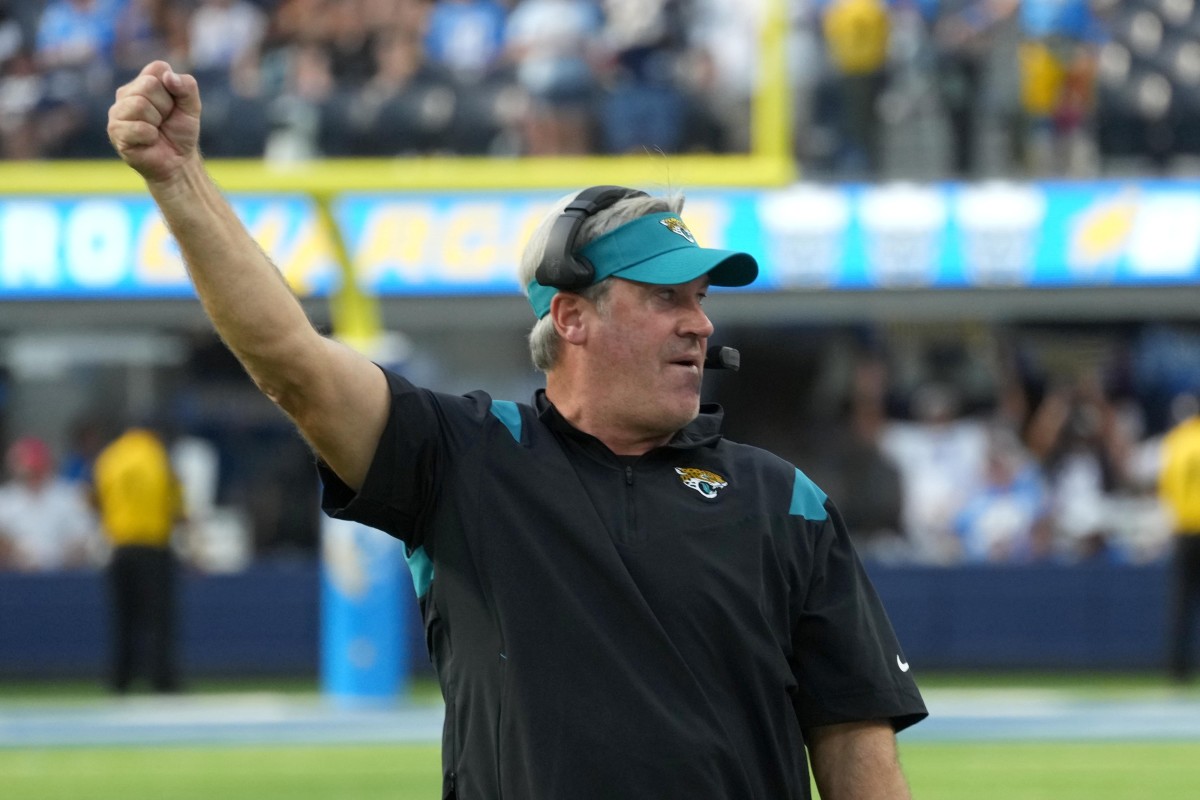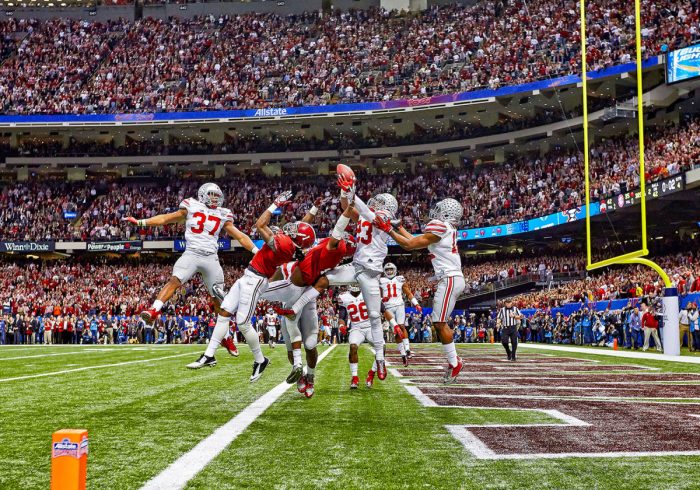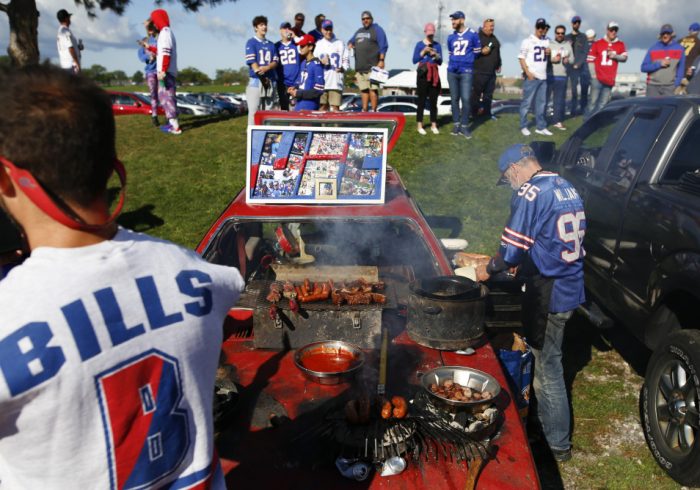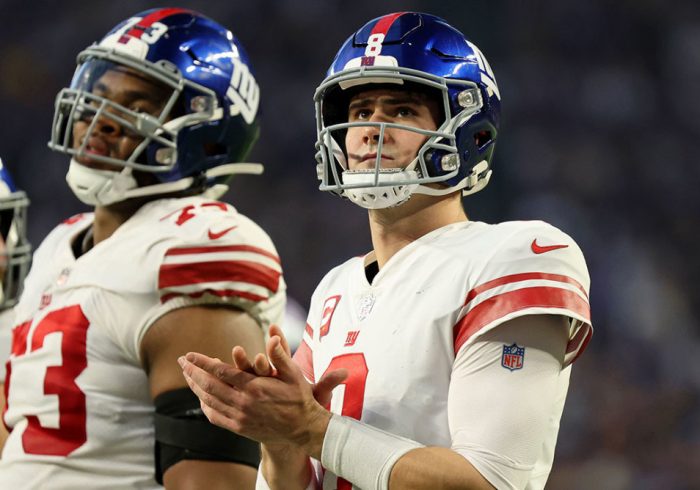The Jaguars’ 38-10 victory over the Chargers on Sunday was one of the most fascinating stories in football. And not just for some desperate board of regents out there in the Big Ten thinking about making an absolutely chaotic decision at their head-coaching position, or a medical malpractice lawyer wondering why in the bloody hell Justin Herbert was in a lost game without his Pro Bowl left tackle trailing by 28 points.
Jacksonville is 2-1.
A week ago, the Jaguars shut out the Colts, who knocked off the unbeaten Chiefs. While it’s important for us not to get caught in the transitive property haze, the point is that, so far, Jacksonville looks like a team that can compete with the upper rungs of the NFL.
Pederson, who won a Super Bowl with the Eagles, faces his former team next Sunday.
Kirby Lee/USA TODAY Sports
Trevor Lawrence throws a football like a generational player. His touchdown pass to Zay Jones in the second quarter showcased almost every reason why he was considered a perfect prospect in one split-second cut-up: mobility, decision-making and a progression scan smoother than the nozzle on a 3-D printer. Mike Caldwell, the team’s defensive coordinator, is leading one of the most efficient rush defense units in the NFL. The Chargers were held to 2.2 yards per carry, with Austin Ekeler gaining only five yards on four carries. They are currently ranked No. 1 in the NFL in opposition rush success rate at 27.8%. For perspective, five NFL teams are allowing a 50% rushing success rate or better by their opponents.
So it gets us thinking: How does the balance of power league-wide change if this team is actually for real? Who expected next week’s game, when coach Doug Pederson returns to Philadelphia, to be anything more than a litmus test for how willing Philadelphians are to boo the man who brought them their only Lombardi Trophy? Who had a Week 10 Jaguars-Chiefs game circled for any non-fantasy football purposes?
We can’t speak for anyone else, but when the Jaguars were buried so deeply last year under the experimental Urban Meyer era, we began to raise fair (at the time) questions about the rest of the roster by association. While it felt somewhat easy to separate the problem from the solution, that didn’t mean there wasn’t collateral damage in the court of public opinion.
Looking at Lawrence now, we can talk about how miraculous it was that the 2021 No. 1 pick survived at all. But at the time, didn’t the disastrous coaching situation sew a little bit of doubt that perhaps Lawrence himself was categorically overhyped or somehow unprepared for the NFL? That it wasn’t simply the machinations of Meyer and this broken offense?
General manager Trent Baalke’s offseason plan involved spending good money on a wide receiver, a veteran offensive lineman and drafting versatile, chess piece defensive players in the early rounds as if the Jaguars were one win away from the playoffs a year ago. In fact, one could question whether Jacksonville was a bit of a directionless ship. Now? Baalke’s moves make sense, and how he put the roster together wasn’t all that bad as it turns out.
It wasn’t so simple to believe a year ago. Bad coaches have a way of absolutely smashing a franchise to pieces. They remain in the walls like a thick tobacco smell years after they’ve moved out and fresh paint has been laid down. A year ago, the Jaguars were here to point and laugh at. We stuffed them in a corner of our minds such as the penguin in Toy Story and allowed them to grow dust while we grew infatuated with other young ascending stars around the league.
Of course, it’s better to make room for another team in our collective consciousness that could potentially, in the next handful of years, be considered a Super Bowl contender instead of an ever-lingering serpent hoping to gobble up another No. 1 draft pick.
The AFC we envisioned in our minds has already taken some hard left turns, scrabbled by the inevitable chaos that is the first quarter of the NFL season. We welcome the Jaguars into the fold. It’s a better place with them than without.
More NFL Coverage:



